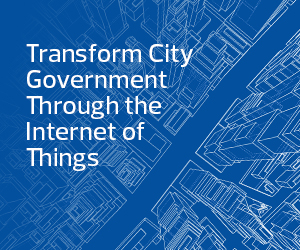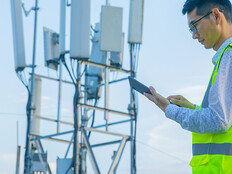The bulk of our work to date has been around public works and public safety, and engineering and water. I suspect we will do a lot more in water in the future.
The second area is maturing processes and policies that ultimately help us more effectively scale these smart solutions and integrate them with existing operations.
We have found that we have focused a lot on policy in how we plan for these things and how we budget for them, and policy for local implementation of infrastructure. We have been doing a lot with data governance, which includes data standards and data quality. We have a very robust structure that is one of the best-in-breed in the country related to data governance. City departments and other enterprise leaders participate in very rigorous monthly meetings, sometimes more frequently, and we have tons of documentation now that we didn’t have two or three years ago to support data classification and standards.
STATETECH: Is this your primary topic of discussion at Smart Cities Connect 2023?
TIFFT: I’m on a panel with the National Institute of Standards and Technology at Smart Cities Connect. NIST is very focused on creating national standards for smart cities. We have been worried about data governance for the last couple of years and really integrating our smart cities work into that. Part of that is focused on things like cloud strategy, data architecture, making sure we have the right tools and functionality for data storage, analytics, business intelligence and security.
LEARN MORE: How Jacksonville is forging a high-tech future in mass transit.
We were one of the first cities to implement a surveillance tech policy, and we continue to implement that. We have a robust surveillance technology working group, which includes members of the community, data ethicists and members of the ACLU. We were one of the first cities to engage the local ACLU in data governance for surveillance tech.
These things bolster the work we do to implement specific pilots and projects. Without the policies as the foundation, it is hard to effectively scale those solutions and make sure they are in line with your city’s strategies and your mayor’s priorities.
STATETECH: What are your top priorities currently?
TIFFT: We are doing some work right now to essentially to develop a Vision Zero strategy. We will continue to do some great things around public works and engineering and public safety and policing that we have been doing. But we have not yet done a lot in transportation.
As a city, we see the importance of establishing a strong Vision Zero policy and framework and then implementing a lot of interventions intended to support a Vision Zero goal. Smart technology is such a facilitator for Vision Zero planning and implementation. We are going to document and release our Vision Zero strategy within the next year, and we will likely double down on transportation tech as a result to execute that strategy.
STATETECH: What has been the third key area of focus for Syracuse?
TIFFT: The third area is digital connectivity to empower city residents. We didn’t necessarily see ourselves playing in this area with as direct a role two or three years ago. We are now becoming a direct service provider. We have launched our digital empowerment program, focusing on digital literacy training and enabling residents to have resources that help them learn how to access and use the internet and computers.
We are providing internet service to low-income residents who don’t have another option for at-home, high-speed internet. In the past few months, we launched our municipal broadband program, called Surge Link. We are very excited about it. We are conducting a pilot right now that will connect 2,500 households initially.
It’s still super-early in our launch, but we are evaluating it over the next few months to develop a plan to scale it. We are targeting a specific part of our city that has low rates of internet access as well as low rates of at-home computer access. We know that there are pockets in every other part of our city that have challenges with accessing the internet. We want to scale Surge Link citywide. Our hope is to do that before the end of the mayor’s administration.
READ MORE: How smart streetlights help smart cities launch networking initiatives.
STATETECH: How is Syracuse building Surge Link?
TIFFT: Part of our strategy is to deploy a fixed wireless network instead of fiber to home. That allows us to achieve some speed to market.
We are anxious to see more data in the coming months about the effectiveness of the network and its utilization and the impact it is having on families that are signing up for the service. But we are getting great feedback about the service, and our hope is that we can provide that service to even more Syracuse residents to help close our digital divide.
As a smart city, we want to improve municipal operations but we also want to improve the quality of life for our people and businesses. That means enabling them to use these technologies. We want to help them achieve digital fluency through our training partnerships and getting folks reskilled as software programmers or to work in the semi-conductor industry. It’s an emerging industry in our region now, and it wasn’t on the radar three years ago when we first started talking about these ambitions.
We will continue to make big investments in all three of those threads moving forward.
Keep this page bookmarked for our coverage of the Smart Cities Connect 2023 fall conference. Follow us on X, formerly known as Twitter, at @StateTech. Join the conversation using the hashtag #SCC23.











